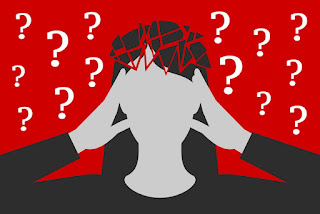Olga Khazan
The Atlantic
Originally posted 3 MAY 22
Here are two excerpts:
Tenelle Porter, a psychologist at UC Davis, studies so-called intellectual humility, or the recognition that we have imperfect information and thus our beliefs might be wrong. Practicing intellectual humility, she says, is harder when you’re very active on the internet, or when you’re operating in a cutthroat culture. That might be why it pains me—a very online person working in the very competitive culture of journalism—to say that I was incredibly wrong about COVID at first. In late February 2020, when Smith was sounding the alarm among his co-workers, I had drinks with a colleague who asked me if I was worried about “this new coronavirus thing.”
“No!” I said. After all, I had covered swine flu, which blew over quickly and wasn’t very deadly.
A few days later, my mom called and asked me the same question. “People in Italy are staying inside their houses,” she pointed out.
“Yeah,” I said. “But SARS and MERS both stayed pretty localized to the regions they originally struck.”
Then, a few weeks later, when we were already working from home and buying dried beans, a friend asked me if she should be worried about her wedding, which was scheduled for October 2020.
“Are you kidding?” I said. “They will have figured out a vaccine or something by then.” Her wedding finally took place this month.
(cut)
Thinking like a scientist, or a scout, means “recognizing that every single one of your opinions is a hypothesis waiting to be tested. And every decision you make is an experiment where you forgot to have a control group,” Grant said. The best way to hold opinions or make predictions is to determine what you think given the state of the evidence—and then decide what it would take for you to change your mind. Not only are you committing to staying open-minded; you’re committing to the possibility that you might be wrong.
Because the coronavirus has proved volatile and unpredictable, we should evaluate it as a scientist would. We can’t hold so tightly to prior beliefs that we allow them to guide our behavior when the facts on the ground change. This might mean that we lose our masks one month and don them again the next, or reschedule an indoor party until after case numbers decrease. It might mean supporting strict lockdowns in the spring of 2020 but not in the spring of 2022. It might even mean closing schools again, if a new variant seems to attack children. We should think of masks and other COVID precautions not as shibboleths but like rain boots and umbrellas, as Ashish Jha, the White House coronavirus-response coordinator, has put it. There’s no sense in being pro- or anti-umbrella. You just take it out when it’s raining.
